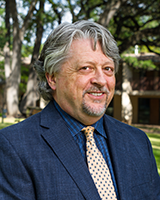Two of the last three blogs I have written for Sowing Holy Questions came in the aftermath of mass killings. The first was the Berlin Christmas Market murders where a truck drove through a crowd of people. The second appeared after the Pulse Nightclub shootings in Orlando. Now, the murder of 17 people in a high school in Florida is only a week old. The day after the shootings, as my early morning class gathered, several parents in the class spoke about the emotional confusion they experienced as they dropped their kids off at school. The overriding emotion was fear and the sense that the desire to protect our children was unmatched by the reality of how easily our sense of normalcy and safety can be shattered. Our sense of order and the general good will of others now balances precariously over a pit of helplessness and fear.
My reaction, strangely, has bordered on resignation. Nothing will change. Rhetoric will fly. Polarities will entrench. Scapegoats will be found. Mental health access will not be expanded. Gun reform will remain a mere talking point. I would like to feel moral outrage, but I don’t right now. I feel an overwhelming sadness. I feel it for everyone involved and I mean that. I feel it for the victim’s families and the victimizer. I cannot and will not even try to describe the chaos in the lives of all those affected. It is beyond my ability.
As a Christian I turn to Scripture to guide and inform my life, I have done so in past blogs. The passage that keeps returning to my thoughts today is Genesis 6:5-6,
“The LORD saw that the wickedness of humankind was great in the earth, and that every inclination of the thoughts of their hearts was only evil continually. And the LORD was sorry that he had made humankind on the earth, and it grieved him to his heart.”
What resonates as I reflect on this passage is the grief of heart. As you know this is the introduction to the Flood narrative, but I am not suggesting catastrophic destruction as an answer. Rather, I find solidarity in God’s grief, which I have not known before and this is why I say my reaction ‘borders’ on resignation. I am not resigned. I am, at this moment, experiencing a vital connection to the life of God in grief and emotional pain. As I seek constant contact with God I am faintly realizing this pain is a shared pain with my Creator. Whatever measure of relief there might be in this insight it does not solve the looming problems. However, I need to take time to sit in this experience and listen to God. I’m not listening for an answer because I don’t know the question to ask, I’m listening for that still small voice. What it speaks to me will be up to God, not me. It will lead me into a deeper union with God and others. It will, I believe, lead me to live a response to what is rather than what I wish was.
After the Pulse Nightclub murders I wrote about Job’s friends and the importance of their initial silence. My focus was on our response to others in the wake of tragedy. Today I’m still writing about silence in the face of life denying horror but it is silence that gives God room to get my attention and transform me. This transformation is leading me away from judgments and answers toward a deep feeling for others and a desire to allow this silence to show me the next right step to take.
How do you listen for God’s still small voice?
Personally, how do you respond when you feel helpless?



